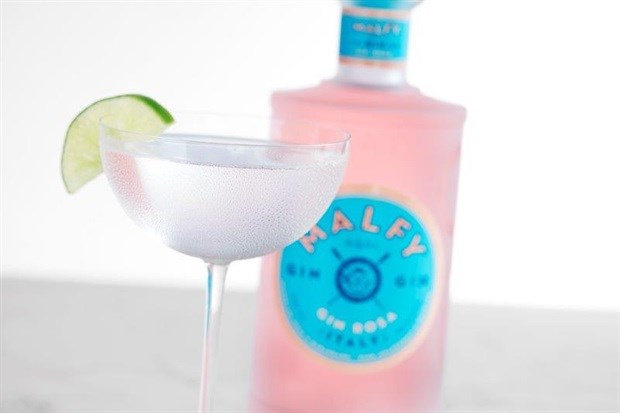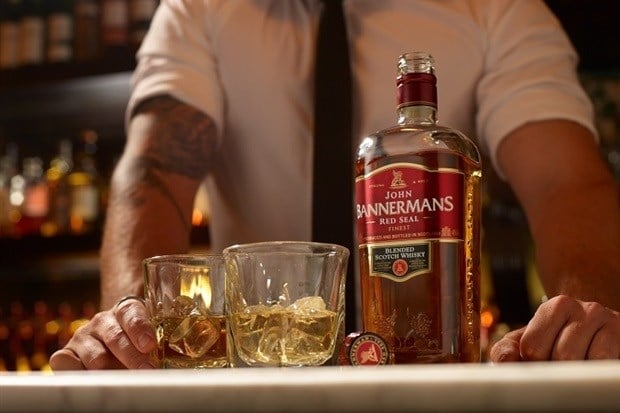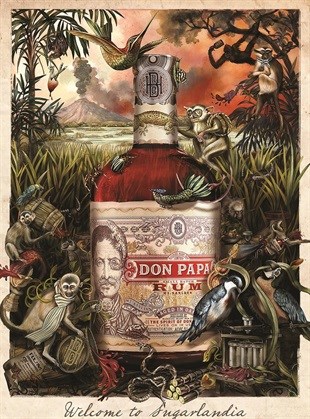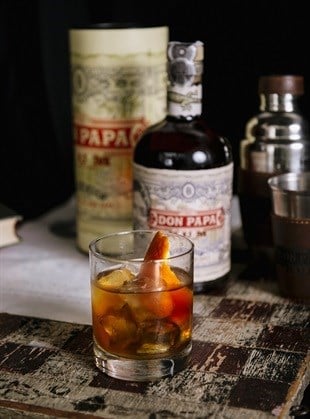
Top stories






More news

















Leibbrandt earned his stripes working abroad for big-name alcoholic beverage producers like Pernod Ricard and William Grant & Sons, before returning home to South Africa to start up his own venture, Truman & Orange, in 2013.
Driving the business strategy is Leibbrandt's mission of offering discerning South African drinkers alternatives to the mega-brands that have monopolised liquor store shelves and bars to date. Selection criteria is focused on brands that are delivering beautifully-crafted drinks with a strong sense of history and provenance.
The growing collection includes agency brands Malfy Italian Gin; Mionetto Prosecco; Aviation Gin; Godet Cognac; Fortaleza Tequila; Don Papa Aged Rum; Spytail Black Ginger Rum and Innis & Gunn Beers. More recently, Truman & Orange partnered with independent drinks company Kensington Distillers & Vinters to launch their range of privately-owned drinks, including Bannerman's Scotch Whisky; Mazzatti Beers and Grace du Roi Sparkling Wines, among others.
Armed with Leibbrandt's vision and energy, and the advisory capabilities of board members like ex-SABMiller Africa CEO Mark Bowman and former AB-Inbev off-premise director Riaan Mac Gillicuddy, Truman & Orange has set out to disrupt the drinks business as we know it.
Here, Leibbrandt shares his startup journey and he why believes SA's liquor industry is in need of a shake-up.
I grew up in Swaziland and KZN, and after studying and starting work in Cape Town I spent most of my career in various part of Europe - the UK, Russia (where I met my wife), France, Germany, Portugal, Greece working for William Grant & Sons and Pernod Ricard in a variety of commercial and marketing roles.
We decided to return to South Africa to start Truman & Orange basically because I believe SA is the most amazing country in the world. At any point in time I’m usually 50% nostalgic for the past, and 50% ridiculously optimistic for the future, and the combination made me miss SA too much and be super excited by the possibilities of an emergent African continent, to stay in Europe forever. SA has fantastic weather and super friendly ‘can do’ people, and I believe we’re living on a continent that is on the cusp of doing something great.

We (my uber-creative wife played a big role in helping me shape what became T&O) had a vague idea beforehand as to what type of company we thought we needed to disrupt the SA drinks industry, but in effect we launched Truman & Orange at a dining room table, with a mobile phone, connecting with people who were working on brands that we’d come across while living in Europe.
I then spent a lot of time in planes flying to see where these curious brands came from, how they were made and to get to know the people who make them, so that we can be sure of their quality and authentic provenance. Almost four years later and we’ve grown by 300%, we have 29 employees and we’ll most likely have 20 more by the end of 2019.
We sell premium brands with real provenance and authenticity, from interesting places that have a long-standing tradition of making high-quality drinks but which are only being discovered now. All of our brands are authentic, have a story to tell (and be told by those who drink them), are thoughtfully packaged and offer unquestionable quality. That’s what people are interested in nowadays.
6am - 1hr swim (or lie in bed feeling guilty knowing I should be swimming).
7:30am - take kids to school on way to work (or, if we’re heading into season like we are at the moment - bribe wife with promised of future coffees in bed to drop them off while I race in to work).
8am - usually at work by this time, and typically spend a good portion of the morning with our various department heads.
Thereafter a lot of my day is spent on the phone – a combination of putting out fires (at any point in time a fast-growing company is usually hard at work trying to burn itself down), helping our team leaders with judgement calls when they need to make complicated decisions, and generally looking for opportunities to grow the business.
I spend a lot of time talking to my partners (non-operational shareholders) and getting their perspective on things. A view-at-a-distance is really helpful sometimes.
I travel a lot though, maybe as much as 50% of my time, and when I’m on the road I tend to get up at 4:30am (we have a company culture of being on the first flight available) and I will work well into the night when I’m away from my family.

I listen to three podcasts regularly (probably 4 to 6 hours a week in total): Econtalk hosted by Russ Roberts, Entrepreneurial Thought Leaders hosted by Stanford University, and The Economist. Daily Maverick and the BD Live app are my sources of local news.
I have a short attention span, and typically have 2 to 3 books on the go (which are read in the 20 minutes during take-off and landing when you can’t have your phone on!) I tend to read non-fiction, and I’ve currently got Margaret Thatcher’s biography, Sapiens, and Fooled by Randomness on the go.
We founded Truman & Orange in 2013 with the single-minded mission of offering increasingly sophisticated South African drinkers alternatives to the mega-brands that have monopolized South African bars and liquor store shelves for too long.
Today’s discerning drinkers are no longer satisfied to drink what their parents drank. They expect premium, quality drinks supported by authentic, human stories. A good ol’ rum and Coke is no longer acceptable. Today’s drinkers have a more sophisticated palate and appreciate the fuller flavour of premium rum, brimming with spice, rich banana and a vanilla character which they’ll sip neat in a cool, urban bar.
They want to know that Don Papa Rum, for example, is a premium aged small-batch rum from the island of Negros Occidental, in the Philippines, created on the fertile foothills of the active volcano Mt. Kanlaon, where the finest noble sugarcane is milled to produce sweet, rich molasses. The rum is charcoal filtered to remove any tannins and impurities before being blended to perfection: a tribute to Papa Isio, the charismatic Filipino leader who, in the 1890s, helped drive the Spanish from the Negros and win independence for the island.
Brands like these are made by real people who love what they do, not gigantic corporations with chrome and glass offices employing thousands of faceless staff members.


Opportunities: The way women drink across a wide repertoire – from bubbly to wine, gin to cocktails – has initiated the demand for innovation across categories. It started with white spirits and the explosion of cocktail culture and it’s spread across the entire spirits industry so that spirits are more part of the everyday drinking occasion than ever before.
The latest International Spirits and Wine Report (ISWR) shows that the compound annual growth rate for premium gin is up by a whopping 127% while imported gin is up by 47%. The keywords here are ‘premium’ and ‘imported’. While local is always lekker, there are not yet enough premium, imported gins to quench the South African thirst for globally-sourced, high-quality, authentic liquid with a story to tell.
Challenges: The crazy country we sometimes live in is an unpredictable place – especially if a decent chunk of what you’re selling is imported for faraway places and the ZAR performance matters! But we’re much more focused on the pros than the cons of operating in a high-potential emerging market – our biggest challenge is probably saying no to good opportunities so that we can be sure we’re executing the critical ones well.
Tenaciousness and a strong contrarian streak are the most important I’d say. My wife describes me as someone who disagrees with everyone and refuses to back down, which may not get you invited to all the dinner parties but I think it’s critical for an entrepreneur. I also like people who can laugh at themselves – the ability to be self-deprecating is typically underpinned with a confidence in yourself and a preparedness to laugh at your (many, many inevitable) mistakes.

Ooh, that’s a good one. I’m inclined to say I’d have convinced myself not to have embarked on my chemistry degree – I was a bad student and definitely not smart enough to have been trusted with a lab coat. Having said that I’m always uncomfortable wishing away things in my past as they have contributed to creating the me of today.
I think my best entrepreneurial advice (to a younger me and anyone starting out) is to choose a space that you understand. I know there are 18-year old geniuses that have started $1bn companies, but my experience of successful start-ups is that they’re typically started by people with a deep understanding of the industry they’re looking to upturn, and more often than not will have worked in for a few years.
And it goes without saying that you should choose an industry you enjoy. Truman & Orange sells premium drinks and these are really cool moments to be involved in – having a gin and tonic on a summer’s day, celebrating with family and friends… The industry that you’re inserting yourself into colours your whole day so you want to be sure that you’re choosing the right colour!
I also just love the aesthetic of drinks packaging, I really enjoy that side of what we do, the epicurean nature of it. The world doesn’t need any more bad-tasting, ugly bottles, does it?
Then a parting thought: before I started Truman & Orange, I anticipated being scared to start. At the time it was more push than pull; I really wanted to leave where I was. And now I can see that a lot of the stuff that makes leaving a corporate job seem scary is all an illusion: even those with corporate jobs are only really ‘secure’ for the next 3 months.
We want to offer South African drinkers choice. We want to help them discover that they needn’t be drinking one mass-produced whisky (or gin, or vodka) but that there is a world of choice out there for curious drinkers looking to experience exceptional products with unique stories and ways of being made. Isn’t that cool?
Find out more about Truman & Orange on their website, and connect with the brand on Facebook and Instagram.
